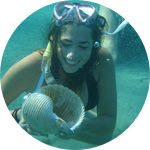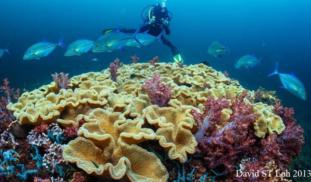34
0
0
Like?
Please wait...
About This Project
Don’t believe in climate change? Watch the corals. Over half of them have disappeared due to the increased oceanic temperatures. Pollution like sedimentation is affecting the reefs as well. However, some reefs are heroes and thrive under pressure. Our project focuses on such reefs in the Miri-Sibuti Coral Reefs National Park in Borneo. We will study the corals responses in different areas and through time to better understand their tolerance against sedimentation and temperature stress.

Browse Other Projects on Experiment
Related Projects
Worms at Work: Scoping Natural Carbon Sequestration at Scale
For centuries, scientists noted earthworms' exploits as ecosystem engineers. Recent research shows the feasibility...
Whales as oceanographers: Developing multi-sensor tags for improved understanding and management of critical habitats
Limited oceanographic data prevent accurate prediction of whale foraging hotspots. To address this, we will...
Communities perception and monitoring of ocean acidification in the Douala-Edea national park (Cameroon)
This project will help us to evaluate the vulnerability of clam fishing to ocean acidification (OA) in the...

